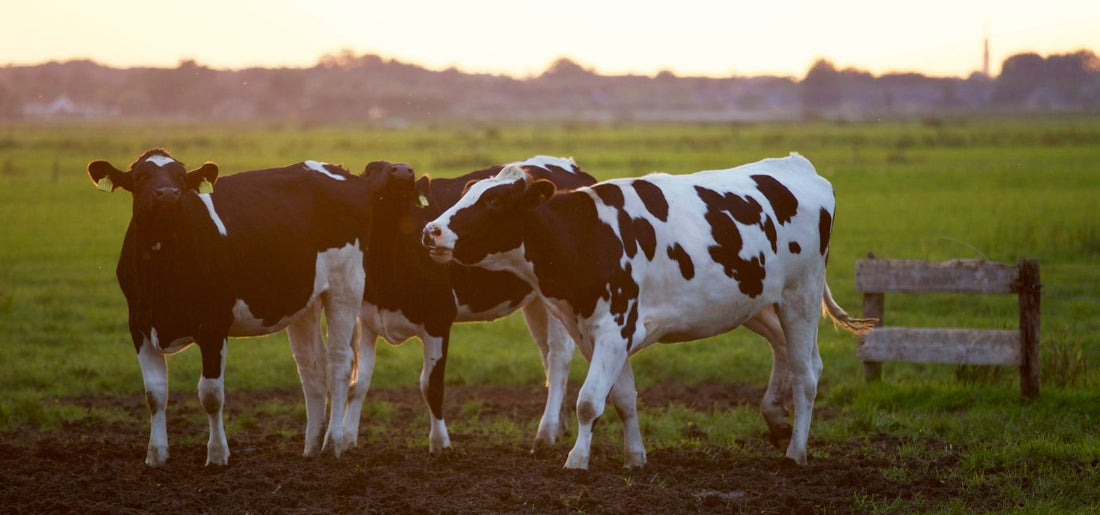Face à la hausse des coûts énergétiques et à l'urgence croissante des enjeux environnementaux, les agriculteurs canadiens se tournent vers l'énergie solaire pour alimenter leurs exploitations de manière plus efficace et durable. L'énergie solaire est bien plus qu'une mode passagère : c'est une solution pratique et pérenne qui transforme le paysage agricole partout au pays.
Pourquoi les agriculteurs devraient-ils utiliser l'énergie solaire ?
1. Factures d'énergie réduites
Les activités agricoles énergivores, comme l'irrigation, la ventilation et la transformation des produits agricoles, peuvent engendrer des factures mensuelles élevées. L'énergie solaire offre une source d'énergie gratuite et renouvelable qui permet aux agriculteurs de réduire considérablement leurs coûts énergétiques tout au long de l'année.
2. Des taux d'énergie prévisibles
Les systèmes solaires protègent les agriculteurs des fluctuations du prix de l'électricité. Une fois installés, ils fournissent une énergie stable pendant des décennies, facilitant ainsi la planification des budgets d'exploitation et réduisant les risques d'imprévus.
3. Réduction de l'empreinte carbone
Les panneaux solaires ne produisent pas d'émissions, ce qui en fait une solution propre aux combustibles fossiles. Alors que l'agriculture canadienne s'efforce de devenir plus durable, l'énergie solaire joue un rôle clé dans la réduction de son impact environnemental.
4. Une plus grande indépendance énergétique
Les systèmes solaires, notamment les solutions hors réseau, permettent aux exploitations agricoles de s'affranchir du réseau électrique. Ceci est particulièrement crucial dans les zones reculées ou rurales où l'accès au réseau est peu fiable ou coûteux.
5. Valeur à long terme
Avec une durée de vie de 25 à 30 ans et des exigences d'entretien minimales, les systèmes de panneaux solaires constituent un investissement judicieux qui s'avère rentable longtemps après leur installation.
Comment l'énergie solaire peut-elle améliorer la productivité agricole ?
L'irrigation simplifiée
Les pompes à eau solaires éliminent le besoin de carburant ou d'irrigation par le réseau électrique. Que ce soit pour les cultures ou l'élevage, ces systèmes offrent un accès fiable et instantané à l'eau.
Éclairage et sécurité
Des granges aux hangars de stockage, l'éclairage solaire prolonge les heures de travail et améliore la visibilité, sans alourdir votre facture d'électricité.
Réfrigération et refroidissement
Les unités de refroidissement à énergie solaire permettent de conserver les fruits et légumes, les produits laitiers et la viande à la température idéale, réduisant ainsi le gaspillage et préservant la qualité des produits.
Soins aux animaux d'élevage
Utilisez l'énergie solaire pour les clôtures, les distributeurs automatiques de nourriture ou les abreuvoirs chauffants en hiver, tout en réduisant les coûts d'exploitation.
Où pouvez-vous installer des panneaux solaires sur votre exploitation agricole ?
-
Toits-terrasses : Les granges, les hangars à matériel ou les maisons bien exposées au soleil sont d'excellents candidats.
-
Centrales solaires au sol : Utilisez les terrains ou les champs inutilisés pour installer des fermes solaires efficaces.
-
Supports sur poteaux et abris pour voitures : Parfaits pour le stockage d'équipement ou les stations d'élevage hors réseau.
-
Zones de pompage d'eau : Associez directement des panneaux solaires à des pompes à eau submersibles ou de surface pour l'irrigation ou l'abreuvement du bétail.
Quelle quantité d'énergie un système solaire agricole peut-il produire ?
Cela dépend de :
-
Taille du système : Des petites configurations de 1 kW pour les stations distantes aux réseaux de plus de 20 kW pour les opérations complètes.
-
Exposition au soleil : Le sud du Canada et des provinces comme l'Alberta ou la Saskatchewan offrent un excellent potentiel solaire.
-
Type de panneau : Les panneaux monocristallins, tels que LONGi ou NEXUS , offrent un rendement supérieur par mètre carré.
-
Stockage d'énergie : Ajoutez un système de batterie LiFePO4 pour stocker l'énergie en vue d'une utilisation nocturne ou en cas d'urgence.
Quelles sont les options de financement disponibles pour les agriculteurs canadiens ?
Le Canada offre plusieurs programmes de financement fédéraux et provinciaux pour soutenir les installations solaires agricoles :
-
Programme de technologies propres agricoles (ACT) – Couvre jusqu’à 50 % des coûts des mises à niveau en énergie solaire.
-
Partenariat canadien pour l’agriculture (PCA) – Offre du financement pour les améliorations à l’énergie solaire selon votre province.
-
Accélérateur Net Zero – Soutien financier aux entreprises agroalimentaires adoptant des technologies à faibles émissions de carbone.
De plus, certaines municipalités et entreprises de services publics locales proposent des programmes de comptage net ou de rachat, permettant aux agriculteurs de tirer profit de leur production excédentaire d'électricité.
Prêt à passer au solaire ?
Que vous cherchiez à réduire vos coûts, à améliorer la durabilité ou à accroître la productivité de votre exploitation, l'énergie solaire est un partenaire éprouvé pour l'agriculture moderne. Chez Rocksolar , nous proposons des kits solaires complets pour l'agriculture, comprenant :




